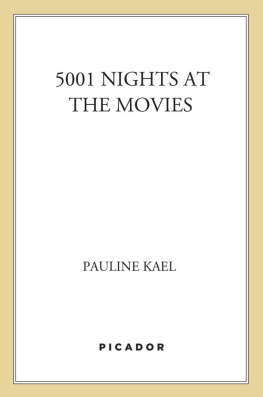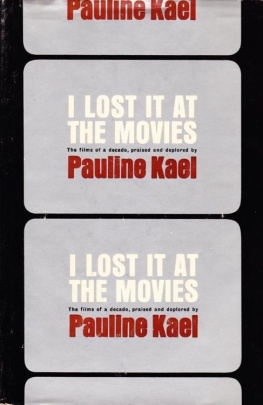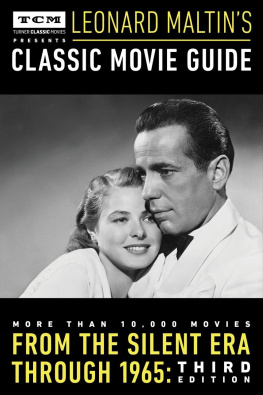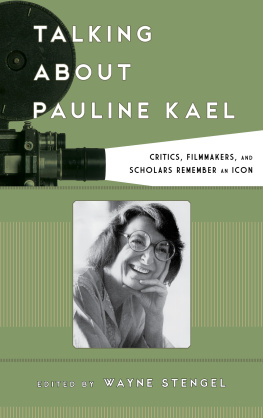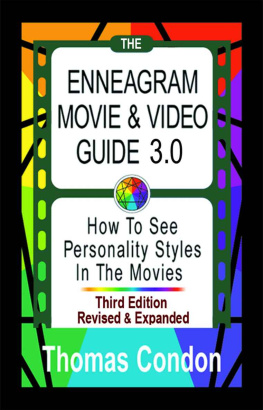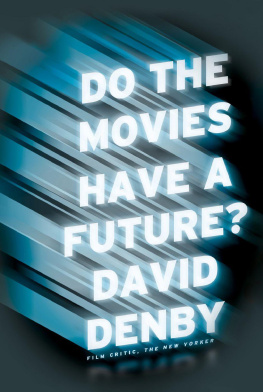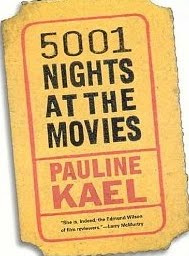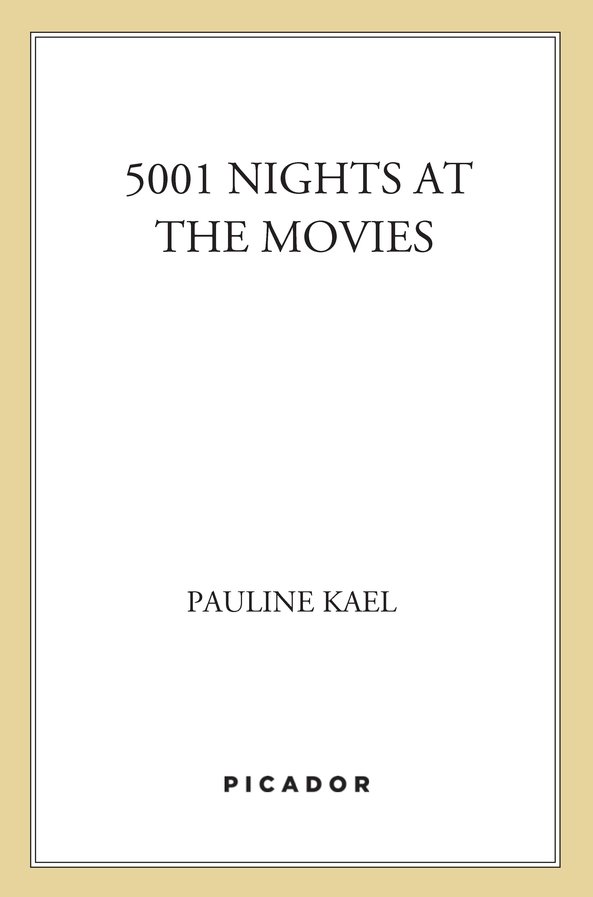PAULINE KAEL won the National Book Award for her film criticism in 1974. The film critic for The New Yorker from 1968 to 1991, she is the author of more than a dozen books on the movies.
A bout de souffle, see Breathless
A Ciascuno il Suo, see We Still Kill the Old Way
double tour, see Lda
nous la libert (1931)Ren Clairs imaginative social satire on the mechanization of modern life begins with a man (Raymond Cordy) who escapes from prison and builds a phonograph-record business with an assembly line thats as regimented as the prison. This factory owner is modelled on Charles Path, who said of his phonograph-cinema empire, Only the armaments industry made profits like ours. The tycoons pal from his prison days is a softhearted little man (Henri Marchand)the underdog embodiment of a free, humanistic spirit. Beautifully made, the picture has elegantly futuristic sets by Lazare Meerson, and Georges Perinals cinematography has a simplified, formal perfection; the whole film is paced to Georges Aurics memorable scoreone of the earliest (yet best) film scores ever written. Clairs directing demonstrates that sound pictures can be as fluid as silents were, and this picture is rightly considered a classic. Yet it isnt as entertaining as his earlier (silent) The Italian Straw Hat or his later Le Million; the scenario (which he wrote) turns a little too carefree and ironicthe film grows dull. A nous la libert was obviously the source of some of the ideas in Chaplins 1936 Modern Times; the producing company filed suit against Chaplin for copyright infringement, but Clair had the suit dropped, saying that All of us flow from Chaplin, and I am honored if he was inspired by my film. In French. b & w
The Abdication (1974)This Warners picture about Queen Christinas stepping down from the Swedish throne, in 1654, is embalmed in such reverence for its own cultural elevation that it loses all contact with the audience. Liv Ullmann is the virgin queen who becomes a Catholic hoping to find ecstasy in God, and Peter Finch is the cardinal who examines her motives. Anthony Harvey directed, on his knees. Were never allowed to forget the exalted rank of the characters, and nothing like human speech intrudes upon the relentless dignity of Ruth Wolffs script (adapted from her own play). Ullmann doesnt have the high style or the mystery that her grand-gesture role requires; her performanceis dutifully wrought and properly weightedshes like a hausfrau whos too conscientious to give good parties. With Cyril Cusack, Paul Rogers, Michael Dunn, and Edward Underdown. The turbulent, pseudo-liturgical score is by Nino Rota; the pictorial cinematography is by Geoffrey Unsworth. color (See Reeling .)
About Last Night (1986)In Sexual Perversity in Chicago, David Mamets one-act play about singles bars and the hostility between the sexes, Bernie, the major character, is a macho braggart; his stooge, the passive Danny, soaks up Berrues poisonhis obsession that women are out to trap them. In this adaptation, written by Tim Kazurinsky and Denise DeClue, and directed by Edward Zwick (its his first picture), Danny, played by Rob Lowe, is the major characterand a hero. Hes intimidated by his pal Bernie (Jim Belushi), but he learns to trust his love for Debbie (Demi Moore) and get off the singles treadmill. And Debbie casts out the doubts that are engendered by her roommate, the caustic Joan (Elizabeth Perkins). The movie is close to being a conventional romance about the adjustments that lovers have to make in their first year togetherexcept that Bernie is around yelling, and Joan keeps putting everybody down. The screenwriters retain much of Mamets dialogue, but they piece it out, and the director punches up the breaks between scenes with rock music. Its like being pounded on the back every two minutes when your back is already sore (because the dialogue has been whacking you so hard). If anyone comes out of this enterprise with honor its Perkins, who, in her first screen appearance, brings appealing, plaintive undercurrents to a ghastly role. Tri-Star. color (See Hooked .)
Absence of Malice (1981)A trim, well-paced newspaper melodrama that queries journalistic practices. Sally Field is the basically insensitive, eager-beaver Miami reporter who snaps up a story that the head of a federal strike force investigating the disappearance of a union leader leaks to her. The story is falsethe federal mans purpose is simply to stir things up by putting pressure on an honest businessman who has Mafia relatives. Paul Newman is the victim, and the movie is about how he turns the methods of the authorities and the newspaperwoman against them. Its doubtful that people who are out to get even are as calm and well-balanced as this character; Newman gives revenge class, so we can all enjoy it. The script, by Kurt Luedtke, a former newspaperman, is crisply plotted, but he doesnt write scenes to reveal anything more in the characters than the plot requires. Sydney Pollacks directing is efficient and the film is moderately entertaining, but it leaves no residue. Except for the intensity of Newmans sly, compact performance (especially in the one scene when he blows up at the reporter and hisses his rage right into her ear), and the marvellously inventive acting of Melinda Dillon in the role of an achingly helpless, frightened woman, and the character bits by Barry Primus, Luther Adler, Josef Sommer, Wilford Brimley, Don Hood, and John Harkins you could get it all by reading an article. As the head of the strike force, Bob Balaban must think that hes doing Captain Queeg. He has devised an attention-getting nervous shtickhe spins his hands around while playing with rubber bandsand he never gives it a rest. Columbia. color (See Taking It All In .)
Absolute Beginners (1986)Colin Mac-Inness 1959 novelan inventive, slangy, poetic celebration of youth and jazz and London, and a cry of disgust at the way teenagers, who didnt emerge as a group with money to spend until the 50s, are alreadybeing commercialized and corruptedhas been turned into a stylized, widescreen musical by Julien Temple. Whether because of the fast-cutting style that Temple developed from his work in rock videos or because of the generally undistinguished choreography, its peculiarly unlyrical and ephemeral. The film has a glossy immediacy, and you can feel the flash and determination that went into it. What you dont feel is the tormented romanticism that made English adolescents in the 70s swear by the novel the way American kids had earlier sworn by The Catcher in the Rye. David Bowie, James Fox, Ray Davies, Anita Morris, and Sade provide entertaining moments; Lionel Blair, Bruce Payne, and Graham Fletcher-Cook come through with glints of humor. But the two central teen-age charactersColin (Eddie OConnell) and the girl he loves, Suzette (Patsy Kensit)seem generic. Musical arrangements by Gil Evans; cinematography by Oliver Stapleton; screenplay by Richard Burridge, Christopher Wicking, and Don MacPherson. Also with Slim Gaillard, Steven Berkoff, and Mandy Rice-Davies. Released in the U.S. by Orion. color ( See Hooked .)
Accident (1967)Joseph Losey and his scenarist, Harold Pinter, use sexual desperation amid the beauty of Oxford in summertime to make our flesh crawl. A cleverly barbed comedy of depravityuneven, unsatisfying, but with virtuoso passages of calculated meanness and, as the centerpiece, a long, drunken Sunday party, with people sitting down to supper when theyre too soused to eat. As a weakling philosophy don, Dirk Bogarde goes through his middle-aged-frustration specialty brilliantly, gripping his jaw to stop a stutter or folding his arms to keep his hands out of trouble. With Stanley Baker, who is properly swinish as another academic, and Vivien Merchant, Jacqueline Sassard, Michael York, Alexander Knox, and Delphine Seyrig as a dumb blonde. From the novel by Nicholas Mosley; cinematography by Gerry Fisher; music by Johnny Dankworth. color ( See Kiss Kiss Bang Bang .)

